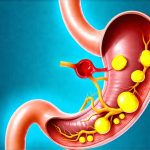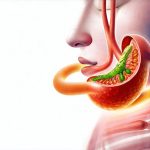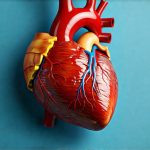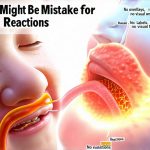Gastroesophageal reflux disease (GERD) often feels like something that develops gradually, a slow creep of discomfort over time. Many people associate it with chronic conditions they’ve ‘always just had’. However, the surprising reality is that GERD can appear relatively suddenly in adulthood, even if you’ve never experienced heartburn or digestive issues before. This can be unsettling – where did this come from? – and prompts many questions about potential causes, what it means for your health, and how best to manage it. It’s important to understand that ‘sudden onset’ GERD isn’t necessarily different in its underlying mechanisms from more gradual development; rather, it’s the timing that is unexpected, often triggered by identifiable life changes or events.
This article will explore the possibility of developing GERD as an adult, focusing on why it can happen unexpectedly and how to approach diagnosis and management. We’ll delve into potential triggers, differentiate between occasional heartburn and true GERD, and outline steps you can take to alleviate symptoms and improve your digestive health. It’s crucial to remember that this information is for general understanding only and should not replace the advice of a qualified healthcare professional. If you are experiencing new or concerning symptoms, consulting a doctor is always the best course of action.
Understanding Sudden Onset GERD
Sudden onset GERD refers to the experience of developing heartburn, acid reflux, or other typical GERD symptoms relatively quickly, without a long history of similar issues. This isn’t necessarily about the severity of the symptoms – they can range from mild to intense – but rather their unexpected appearance. Someone who has always had a healthy digestive system might suddenly find themselves experiencing nightly heartburn, for example. It’s important to distinguish this from occasional indigestion or heartburn after a particularly large meal; those are common and usually resolve quickly without intervention. True GERD involves frequent or severe symptoms that interfere with daily life. This sudden emergence can be caused by a variety of factors, often intertwined.
One key aspect is recognizing the role of lifestyle changes. A new job involving increased stress, a significant weight gain (even moderate), or alterations in diet – like adopting a more processed food-heavy eating pattern – can all contribute to GERD development. Hormonal shifts are also powerful triggers; pregnancy and menopause, for example, significantly impact digestive function and esophageal pressure. Furthermore, seemingly unrelated events like starting a new medication (some medications relax the lower esophageal sphincter) or undergoing surgery (which can alter abdominal pressure) can unexpectedly initiate GERD symptoms. The suddenness often stems from these changes exceeding the body’s compensatory mechanisms, leading to noticeable reflux episodes.
The underlying cause of GERD is typically related to a weakened or malfunctioning lower esophageal sphincter (LES). This muscle acts as a valve between the esophagus and the stomach. When it doesn’t close properly, stomach acid can flow back up into the esophagus, causing irritation and inflammation. While some individuals may have inherently weaker LES muscles, sudden onset GERD often indicates that something has compromised its function—a change in lifestyle or physiological state rather than a pre-existing weakness being revealed. Identifying these contributing factors is essential for effective management. If you are concerned about changes to your diet after pregnancy, consider reading Can You Develop Food Intolerances After Pregnancy.
Potential Triggers & Risk Factors
Identifying what might have triggered your GERD can be a crucial step toward managing it. While pinpointing the exact cause isn’t always possible, understanding potential triggers helps you make informed lifestyle adjustments. Here are some common culprits:
- Dietary Changes: Increased consumption of fatty foods, spicy foods, chocolate, caffeine, alcohol, and carbonated beverages can all relax the LES or increase stomach acid production.
- Weight Gain: Excess weight puts pressure on the abdomen, pushing stomach contents upward toward the esophagus. Even a moderate amount of weight gain can contribute to GERD symptoms.
- Stress & Anxiety: Stress doesn’t directly cause GERD, but it can exacerbate symptoms and worsen perception of discomfort. It also impacts digestive processes.
- Smoking: Smoking weakens the LES and increases stomach acid production, making reflux more likely.
- Medications: Certain medications—including some pain relievers, antidepressants, and blood pressure medications—can contribute to GERD as a side effect.
- Pregnancy: Hormonal changes during pregnancy relax the LES, increasing the risk of heartburn and reflux. The growing fetus also puts pressure on the stomach.
It’s important to note that these are often interconnected. For example, stress can lead to poor dietary choices, which then exacerbate GERD symptoms. Recognizing this interplay allows for a more holistic approach to management. A detailed review of your recent lifestyle changes is often the first step in understanding sudden onset GERD. If you struggle with anxiety around food, it might be helpful to explore Can You Eat Mindfully With Digestive Fear.
Diagnosing GERD – Beyond Self-Diagnosis
While you might suspect GERD based on your symptoms, a proper diagnosis from a healthcare professional is essential. This isn’t just about confirming the condition; it’s also about ruling out other potential causes of similar symptoms and determining the severity of your GERD. Self-diagnosing can lead to inappropriate treatment or delayed care for more serious underlying issues.
The diagnostic process typically begins with a thorough medical history review, where your doctor will ask about your symptoms, lifestyle habits, medications, and any family history of digestive disorders. A physical examination may also be performed. Depending on the severity and persistence of your symptoms, your doctor might recommend further testing:
- Endoscopy: This involves inserting a thin, flexible tube with a camera into the esophagus to visualize the lining and check for inflammation or damage.
- Ambulatory Acid (pH) Probe Test: A small device is placed in the esophagus to measure acid levels over a 24-hour period, providing valuable information about reflux frequency and severity.
- Esophageal Manometry: This test measures the pressure within the esophagus and how well the LES is functioning.
These tests help determine if GERD is present, identify any complications (like esophagitis or Barrett’s esophagus), and guide treatment decisions. Don’t hesitate to discuss your concerns with your doctor and ask questions about the diagnostic process. Sometimes a Can You Reset Digestion With A Liquid Diet can help identify sensitivities.
Managing Sudden Onset GERD & Preventing Flare-Ups
Once diagnosed, managing GERD often involves a combination of lifestyle modifications and, in some cases, medication. The goal is to reduce acid production, strengthen the LES (where possible), and protect the esophagus from damage. Lifestyle changes are typically the first line of defense, as they address the underlying contributing factors.
Dietary adjustments play a significant role. This doesn’t necessarily mean eliminating all your favorite foods but rather making mindful choices and avoiding known triggers. Smaller, more frequent meals can help reduce stomach pressure, while elevating the head of your bed during sleep can prevent nighttime reflux. Losing weight if you are overweight or obese is also highly beneficial. Stress management techniques – such as yoga, meditation, or deep breathing exercises – can further alleviate symptoms by reducing overall stress levels and improving digestive function.
If lifestyle changes aren’t sufficient to control your GERD, your doctor may recommend medication. Over-the-counter antacids can provide temporary relief, while proton pump inhibitors (PPIs) and H2 receptor blockers reduce stomach acid production. These medications should be used under the guidance of a healthcare professional, as long-term use can have side effects. It’s important to remember that medication is often part of a broader management plan; it’s not always a cure. Understanding Can You Be Addicted To Trigger Foods can also help break unhealthy patterns.
Long-Term Outlook & When to Seek Further Help
The good news is that most cases of GERD, even sudden onset, can be effectively managed with lifestyle changes and/or medication. However, if left untreated, chronic GERD can lead to complications such as esophagitis (inflammation of the esophagus), esophageal strictures (narrowing of the esophagus), and Barrett’s esophagus—a condition that increases the risk of esophageal cancer.
It’s important to be vigilant about your symptoms and seek medical attention if you experience any concerning changes, including: difficulty swallowing, persistent chest pain, unexplained weight loss, or vomiting blood. These could indicate a more serious underlying problem requiring further investigation. Regular follow-up appointments with your doctor are crucial for monitoring your condition and adjusting treatment as needed.
Ultimately, understanding the potential causes of sudden onset GERD and proactively addressing contributing factors is key to long-term health and well-being. By making informed lifestyle choices and working closely with your healthcare provider, you can effectively manage symptoms and prevent complications, ensuring a better quality of life. Remember that feeling suddenly unwell doesn’t necessarily mean something dramatically wrong has happened – it could be a signal to reassess habits and prioritize digestive health. If you are trying to find ways to improve gut health, Can You Eat For Gut Health Without Rules may provide some guidance. Also, consider if Can You Overdo Anti Inflammatory Foods is playing a role in your digestion.


















